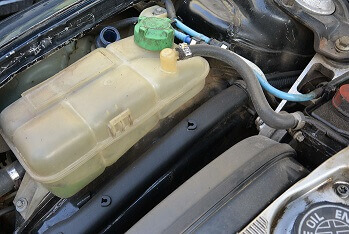Pumping Glycol: Glycol Types
Where is Gycol Used?
Glycols serve as versatile liquids suitable for cooling, heating, and protective purposes. When mixed with water, they provide protection against freezing, particularly in engine cooling systems, while also acting as efficient heat transfer mediums to maintain system temperatures. Additionally, glycols find applications in various industries, including varnishes, paints, polishes, inks, cosmetics, polyurethane, and polyethylene production. 
With relatively low specific gravity and viscosity, glycols can be effectively handled using centrifugal pumps. This makes them suitable for a range of pumping applications, including those involving cooling tanks attached to main engines.
Why is Glycol Used?
The use of glycols is favoured not only for their versatility but also for their cost-effectiveness. Their inert nature and broad chemical compatibility enable the use of cheaper materials such as cast iron in closed-loop cooling systems. In contrast, alternatives like seawater or brine require more expensive materials due to their corrosive nature
Glycol Types
Glycol is often used in one of four forms, Ethelene, Propylene, Mono Ethylene, or Triethylene Glycol.
Ethelene Glycol is used for industrial processes such as cooling, and in the applications above and it is toxic for human consumption.
Propylene Glycol is non toxic and used in food and medicine to absorb excess water yet maintain moisture in medicine, and dissolve colours and flavours.
Mono Ethylene Glycol also known as MEG is typically used as a component of coolants, antifreeze and deicers as well as in the manufacture of polyester fibres.
Triethylene Glycol also known as TEG is used in the oil and gas industry to dehydrate natural gasses such as Carbon Dioxide (CO²), Hydrogen Sulfide (H2S) and other gasses containing oxygen.
Important considerations when pumping glycol
When it comes to pumping glycols, several crucial considerations must be taken into account to ensure efficient and safe operations. Here are some essential factors to consider:
Chemical Compatibility: It's vital to select pump materials that are compatible with glycols. Stainless steel, certain plastics, and corrosion-resistant alloys are commonly used for this purpose. Incompatible materials can lead to corrosion and premature pump failure.
Viscosity: Glycols have higher viscosities compared to water, which can affect pump performance and the power absorbed at a duty point. Choosing a pump with adequate kw and a design optimised for handling viscous fluids is essential to maintain desired flow rates and pressure levels.
Temperature Sensitivity: Glycols exhibit temperature-dependent viscosity and density changes. Pump selection should account for the operating temperature range to ensure proper performance across varying conditions. Additionally, measures such as insulation and heat tracing may be necessary to prevent glycol from freezing in cold environments.
Seal Selection: Seals play a critical role in preventing leakage and ensuring the reliability of glycol pumps. Mechanical seals or packing arrangements should be chosen based on compatibility with glycols and the specific application requirements.
Maintenance Requirements: Regular maintenance is crucial for prolonging the lifespan of glycol pumps and minimizing downtime. This includes monitoring for signs of wear, checking seal integrity, and lubricating moving parts as necessary.
Safety Considerations: Handling glycols requires adherence to safety protocols to prevent exposure risks. This includes proper ventilation in pump rooms, use of personal protective equipment, and compliance with relevant regulatory standards.
Environmental Impact: Spills or leaks of glycols can have environmental consequences. Implementing spill containment measures and proper disposal procedures is essential to minimise the environmental impact of glycol pumping operations.
By carefully considering these factors, engineers and operators can ensure the reliable and efficient pumping of glycols in various industrial applications while maintaining safety and environmental responsibility.
To discuss your project or for assistance with specifying a pump for glycol transfer get in touch with our team.




